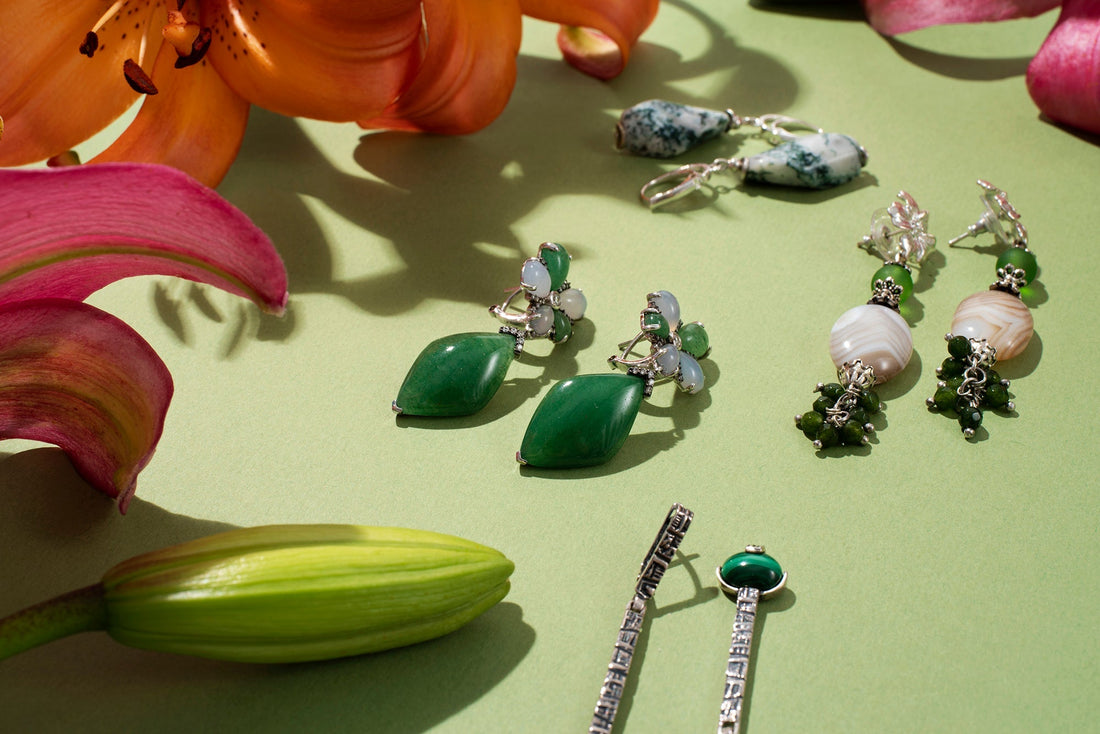
The Cultural Significance and Symbolism of Jade in China
In Chinese culture, white jade is highly revered for its purity, elegance, and symbolic significance. It is associated with virtues such as wisdom, integrity, and harmony, making it a cherished material for jewelry, decorative objects, and ceremonial items. The luminous, translucent quality of white jade is believed to embody the refined and noble qualities of the human spirit.

Jade has been a symbol of status, spirituality, and protection in Chinese culture for thousands of years. Its significance goes beyond just being a beautiful gemstone; it holds a deep cultural and spiritual meaning that has been passed down through generations.
What is the Cultural Significance of Jade in China?
In Chinese culture, jade is believed to have protective and healing qualities. It is often associated with good luck, prosperity, and longevity. The stone is also seen as a symbol of purity, morality, and integrity. For these reasons, jade has been highly prized and revered in Chinese society.
Why is Jade Considered a Symbol of Power and Status?
Throughout history, jade has been reserved for the elite and the imperial family in China. It was seen as a symbol of power, wealth, and authority. Emperors were often buried in jade suits to protect them in the afterlife and to symbolize their status as divine rulers.
How is Jade Used in Chinese Traditions and Ceremonies?
Jade plays a significant role in Chinese rituals and ceremonies. It is often used in traditional Chinese medicine for its healing properties. Jade ornaments and jewelry are also worn during important events such as weddings and festivals to bring good fortune and ward off evil spirits.
What are the Different Types of Jade and Their Meanings?
There are two main types of jade highly valued in Chinese culture: nephrite and jadeite. Nephrite jade is known as the "stone of heaven" and is associated with purity and spirituality. Jadeite jade, on the other hand, is considered the rarer and more precious of the two, symbolizing good luck and prosperity.
Overall, jade holds a special place in Chinese culture as a symbol of power, protection, and prosperity. Its significance can be seen in various aspects of Chinese life, from art and jewelry to rituals and ceremonies. The cultural importance of jade in China continues to endure, making it a timeless and revered gemstone in Chinese society.
Jade has long been revered in Chinese culture for its symbolic and metaphorical properties. Traditionally, jade bracelets have been believed to possess various beneficial qualities, though the scientific evidence supporting these claims is limited. Culturally, jade is associated with soothing the nerves, attracting wealth, and providing spiritual protection. The calming aesthetic and cultural significance of jade may have a placebo-like effect for some wearers, but there is no conclusive scientific proof that jade bracelets can directly influence one's mental state, financial fortune, or physical safety.
However, the status of jade as a precious gemstone and its deep-rooted symbolism of purity, wisdom, and harmony in Chinese tradition are well-established. Wearing a jade bracelet is primarily a matter of cultural belief and personal preference, rather than empirically-proven medical or practical benefits.
Feeling blue lately? Jade is believed to possess powerful healing properties that can help alleviate feelings of depression and bad luck. By wearing a Jade bracelet, the gemstone's inner energy is said to absorb and transmute negative emotions, allowing the wearer to experience a more positive and uplifting state of mind. While the scientific evidence for these claims is limited, the cultural significance and symbolic power of jade make it a cherished accessory for those seeking to connect with the rich traditions of Chinese culture.
